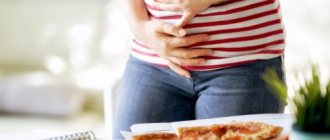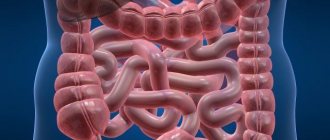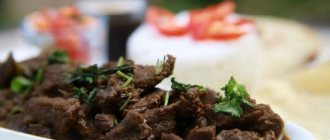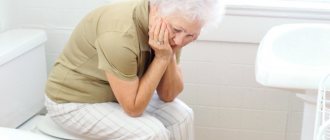Caring for an elderly relative is a huge challenge for all family members. In addition to health and mood problems, situations often arise when a grandfather or grandmother does not eat anything and sleeps constantly. At first, loved ones may not pay attention to this, but poor appetite, increased sleepiness and refusal to eat in older people are a serious cause for concern. In order to prevent the illness from becoming chronic, you need to start taking measures as early as possible and immediately contact a specialist.
Why an elderly person may refuse food
Before prescribing treatment, the doctor must determine why the desire to eat has disappeared. Some of the most common causes of poor appetite include the following:
- chronic diseases of the gastrointestinal tract;
- stomatitis;
- pneumonia;
- oncology;
- thyroid diseases;
- infections of various etymologies;
- acute respiratory diseases;
- mental disorders, dementia;
- consequences of physical or psychological trauma;
- side effects of drugs.
In addition, refusal to eat can be triggered by bad habits: drinking alcohol or smoking. The doctor conducts diagnostics, prescribes examinations that will help identify the cause and select therapy.
It is important to remember: the longer this condition is left unattended, the less chance of recovery. The last stage begins when the grandfather or grandmother does not eat, only drinks, bile and vomiting occur. In this case, urgent hospitalization is required: only emergency measures will help.
When an elderly person is just a hostage of circumstances
Poor appetite in old age is quite common. The natural functions of the body weaken, a person leads a sedentary lifestyle and spends less energy. Accordingly, the desire to eat decreases. The functioning of taste buds deteriorates: favorite dishes no longer give the same pleasure. It turns out to be a vicious circle: a pensioner needs less food, which causes weakness and loss of strength. Gradually, interest in food disappears completely.
Refusal to eat often occurs gradually. First, the pensioner stops eating meat, as it takes a long time to digest. Then he gives preference to some light food: cereals, purees, soups. After some time, even such dishes begin to be digested with difficulty; the patient eats less and less and only drinks water, milk, and fermented milk products.
If an elderly person does not eat well, what should relatives do, and should they be forced to eat? It is unlikely that it will be possible to feed through force: a pensioner may simply spit out food or press his lips tightly together, not succumbing to the persuasion of loved ones. Such demonstrative behavior requires radical measures; only a doctor and specially selected therapy will help.
You cannot shout or put pressure on the patient - this will only worsen the condition. Sometimes the patient simply does not understand what is happening to him due to psychological reasons or various diagnoses. Relatives have to show maximum patience and attention. If there is no time and opportunity for full care, you can use the services of private boarding houses. Such institutions have the necessary equipment for feeding, and the staff is trained to work with even the most capricious and demanding guests.
Refusal to eat in bedridden elderly after stroke
If age-related whims and stubbornness can still be somehow dealt with, then how can you force an elderly person to eat if he is bedridden? In such cases, refusal to eat indicates irreversible destructive processes occurring in the body. The patient gradually fades away, and there is practically no hope for recovery.
Relatives, trying to feed the patient, believe that they are helping him, but in reality they are only making things worse. In such situations, all that remains is to ensure that the person receives a sufficient amount of fluid. If he can no longer swallow water or tea, he should periodically moisten his lips with a wet cotton pad or a clean cloth so that the patient does not have dry mouth.
If the grandfather or grandmother does not eat anything, only drinks water, this is not the worst thing. When the body stops even accepting liquid, it’s time to connect special devices for artificial feeding, but this should only be done under the supervision of specialists.
What should you drink if you are poisoned?
Rosehip decoction will help quickly get rid of the symptoms of poisoning.
In this situation, the first thing you need to do is drink plenty of fluids. It is better if it is purified or boiled water.
Drinking plenty of fluids will help remove toxins from the body as quickly as possible.
And if normally a healthy person is supposed to drink from 1.5 to 1.8 liters of liquid per day, then after poisoning the recommended volume should be increased to 2.5 liters. You can also use:
- rosehip decoction;
- dried fruits compote;
- black tea without sugar and weakly brewed green tea;
- homemade jelly;
- infusion of chamomile and other herbs that have a calming effect.
It is not recommended to drink coffee, as it has a pronounced diuretic effect, which can complicate the condition of the body if it has lost enough fluid.
Eating tips for older adults after a stroke
There are several alternative ways to help feed an elderly person without causing him any inconvenience:
Nasogastric tube
Probe installation is indicated in the following situations:
- stroke resulting in partial or complete impairment of swallowing function;
- swelling of the larynx, esophagus, pharynx;
- surgical interventions after which normal eating is temporarily impossible;
- psychological disorders accompanied by food refusal;
- unconscious and comatose state of the patient.
Using a feeding tube, you don't have to worry about getting an older person to eat. Food is supplied using a sterile syringe and funnel. Dishes should be warm and pureed. The diet mainly consists of cereals, broths, kefir, and special nutritional mixtures.
Gastrostomy
The device allows you to introduce food directly into the gastrointestinal tract, bypassing the oral cavity and esophagus. It is most often used after surgery or for cancer of the throat, pharynx, and larynx. Using a gastrostomy tube, the patient is given soups, cereals, jelly, raw eggs, milk and fermented milk products.
Parenteral nutrition
The method is a special form of intravenous therapeutic nutrition. It is used in cases where the patient cannot eat food on his own. Special drugs are administered intravenously and ensure that the body receives the necessary nutrients to maintain life. Mixtures are selected individually, taking into account the age and condition of the patient.
What should you do if you have symptoms of poisoning?
If poisoning occurs, immediate action must be taken.
There are general recommendations that will help bring the body back to normal and avoid unpleasant consequences. So:
- First you need to rid yourself of unnecessary stress. It would be appropriate to take time off from work, since the work process requires energy and strength, which are not enough in a state of poisoning. Providing yourself with a rest regime will be a wise decision.
- Many experts agreed that diarrhea that occurs during the period of poisoning should not be stopped with special drugs (for example, Lopedium or Imodium). Why? According to recent studies, it is found that in this condition it is better if the body gets rid of toxins (through the process of diarrhea) naturally. Eliminating diarrhea with medications may require additional treatment later.
- If you experience severe vomiting or loose stools, you can resort to a folk recipe - drink a glass of freshly squeezed pumpkin juice. This greatly helps reduce the intensity of symptoms of poisoning and improves the patient’s condition.
- A very simple but effective way to remove toxins from the body is to use the well-known activated carbon or Enterosgel. Charcoal is usually taken at the rate of 1 tablet per 10 kg of body weight.
- Naturally, at the “peak” of poisoning, when symptoms of nausea and vomiting are clearly manifested, loose stools are observed, it is absolutely forbidden to eat food, not to mention drinking alcohol and other harmful substances.
- When the acute period subsides, it is appropriate to take probiotics, which help restore normal gastrointestinal microflora. Such medicines include: “Lactobacterin”, “Linnex”, “Enterosgel”, “Hilak Forte”, etc. The annotations for the drugs indicate the required dosages.
- What is the difference between ordinary (household) poisoning and poisoning due to damage to the body by pathogenic microorganisms?
- It should be noted that one must learn to differentiate (separate) ordinary household poisoning from poisoning caused by harmful bacteria and viruses. What is the difference? These two pathological conditions differ in severity. Damage by harmful microorganisms is much more serious and can cause diseases that affect organs and systems. Such infections include, for example, hepatitis and salmonellosis. In these cases, the already known symptoms (vomiting, diarrhea and nausea) are accompanied by hyperthermia (high temperature), severe pain in the epigastric region, sometimes cramps and difficulty breathing. This condition requires immediate medical intervention.
Household poisoning occurs, as a rule, due to the consumption of low-quality products or products that have expired. Simple poisoning occurs much more easily (as already mentioned above) and does not pose a particular threat to human health and life.
What to do if an elderly person refuses to eat
In order not to take the situation to an extreme, older people need to be constantly monitored, pay attention to what they eat and how many times a day they eat. If, for example, an 84-year-old grandmother refuses to eat, this may mean that she lacks care from loved ones and wants to attract attention. In the initial stages of loss of appetite, interest in food can be restored in simple ways:
- Set up a regime. It is advisable to have 4-5 meals during the day. At the same time, portions should be small - this improves metabolism. It is not without reason that in private boarding houses guests are fed in this way, in accordance with the recommendations of experts.
- Review your diet. Focus on light, low-fat dishes. Add more fresh vegetables and fruits to the menu. If an elderly person has difficulty chewing solid food, use a blender to chop. It is recommended to include thirst-causing foods in the menu, such as pickles or tomatoes (in limited quantities). Increasing the daily volume of water consumed can provoke a good appetite.
- Provide feasible physical activity. Basic morning exercises, walks in the fresh air, Nordic walking - these exercises do not require much strength, but they work well to awaken the appetite. When it comes to a bedridden patient, you can arrange special devices for training the arms or upper shoulder girdle.
- Create a favorable emotional environment. Sometimes, to understand why an elderly person refuses to eat, you need to look at the conditions in which he lives. Difficult relationships with loved ones, a tense atmosphere, dissatisfaction from relatives - all this does not contribute to a good appetite. A pensioner who finds himself in such a difficult situation will prefer to move to a private boarding house for the elderly: in such institutions they carefully monitor that the guests do not receive any negativity.
- Establish a trusting relationship with the patient. If a person cannot eat on his own and uses the help of strangers, it is important that the one who feeds the patient inspires trust and favor. This could be a relative, friend or good neighbor. You may have to use coaxing and affection during the feeding process, the main thing is that there is a result.
It is recommended to pay special attention to the quality of the dishes offered to the patient. Tasteless food cannot cause appetite. You can ask an elderly person what he would like to eat most - it is quite possible that he dreams of a specific treat.
What can you eat after poisoning?
After poisoning, you need to eat food that is easy on the stomach.
So, if the acute period has passed and the body gradually begins to “recover” from the stress it received, it is also necessary to gradually begin to eat.
What can you eat? If it becomes much easier and a slight feeling of hunger appears, then doctors advise not to immediately overload the stomach, but to eat foods that will be easily digested. These products include regular crackers and tea without sugar.
The next meal may consist of light chicken broth without adding vegetables or spices. You can also eat liquid porridge and mashed potatoes, but you should not add salt, milk or butter to them.
Dietary meals should be eaten in small portions so as not to overload the already damaged stomach. Sometimes 2-4 tablespoons per serving may be enough. This diet is acceptable on the first day after poisoning.
Medication and professional help
In some cases, medications can help improve appetite. First of all, we are talking about special vitamin complexes that are sold in pharmacies. Vitamin B12 and ascorbic acid have a good effect on the condition. The doctor must select the drug, and he will also prescribe the dosage.
The same applies to tablets: today there are an abundance of drugs on the market that can restore and improve appetite. But in no case should you self-medicate: each remedy has contraindications and particularities of use.
The network of boarding houses “Warm Conversations” employs competent specialists, including experienced gastroenterologists, who will help you choose an effective treatment regimen for loss of appetite. The daily menu is compiled taking into account the age of the guests, the emphasis is on healthy dishes rich in fiber and vitamins. If an elderly relative refuses to eat and complains of lack of appetite, you can try to move him into one of the modern, comfortable boarding houses on a temporary or permanent basis. Attentive staff will definitely find an approach to the patient and help restore interest in food and life.








